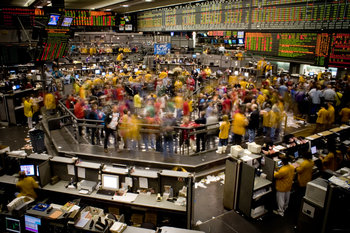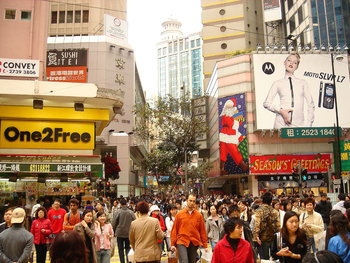
Information Goods
The value of information goods including data such as market data and knowledge such as a book.Knowledge Economy
A global economic shift towards jobs that produce knowledge outputs such as strategies, plans, designs, specifications, instructions, data and computer code.Risk & Uncertainty
Risk results from a lack of information about the future, also known as uncertainty.Unknown Unknowns
Risk can be identified, estimated and managed but unknown unknowns will remain.Behavioral Economics
Modeling how real people actually react to information. For example, a stock price that is rising rapidly might logically be viewed as expensive. However, this might trigger a fear of missing out and an intense desire to buy without regard to valuation.Expectations
Expectations that influence economic behavior. For example, if consumers feel gloomy about the future they may cut back on spending and risky investments. As such, polls of consumer sentiment are considered valuable economic indicators.Asymmetric Information
Asymmetric information is when certain economic agents have an information advantage over others in a market. This can cause economic inefficiencies. For example, if insiders at a company can profit from information before it is released this may reduce investment returns for all other investors and cause less capital to be invested in an economy.Incentives
The information that is used to award economic agents such as the executive management of a firm. For example, if a CEO receives a large reward if the company is acquired, the executive could have the perverse incentive to drive down the shares of the company to tempt a competitor to buy them out.Speculation
Economic agents who attempt to forecast the future to profit. For example, guessing at currency exchange rates to attempt to make a quick profit. Speculation differs from investing in that it often doesn't produce value but is more of a zero-sum game. This can have real economic disadvantages such as creating a market bubble that results in a crash and a period of financial instability.Private Information
Information as a competitive advantage such as a trade secret or patent.Adverse Selection
A situation where either the buyer or the seller have more information in a transaction. The classic example is that customers facing risks are more likely to buy insurance. For example, if you are often falling off your bike, you might think it's time for insurance whereas the insurance company wouldn't traditionally have access to this information.Search Costs
The difficulty in finding information to make economic decisions. Decreases in search costs, such as the introduction of the internet, can make an industry far more competitive as it allows people to more easily evaluate prices and quality.Signalling
The communication of value in a market. For example, a brand or a college degree that signal value to consumers and employers respectively.Screening
Firms often want to charge consumers different prices based on their willingness to pay but this information is difficult to determine. Screening is the process of trying to differentiate between customers based on their price sensitivity. For example, an airline might offer lower fares if you stay at your destination over the weekend. This is used to screen business travelers who often want to make it home for the weekend and are often willing to pay a higher fare.| Overview: Information Economics | ||
Type | ||
Definition | The discipline of modeling the role of information in an economic system. | |
Related Concepts | ||































